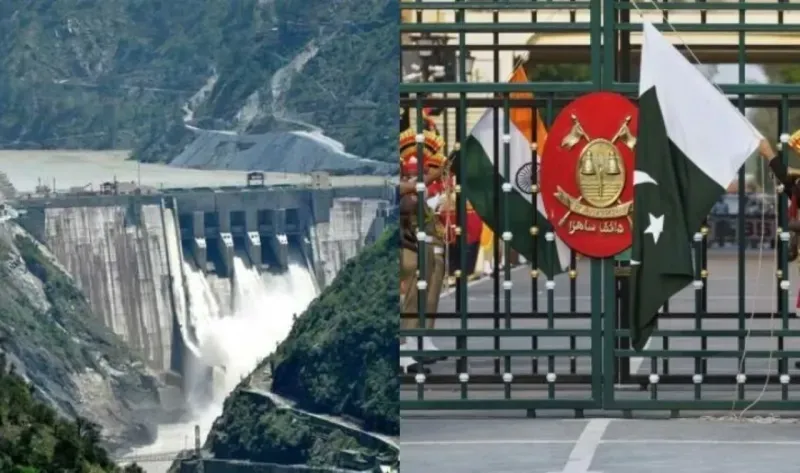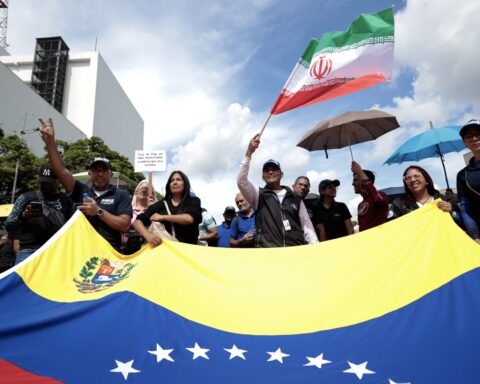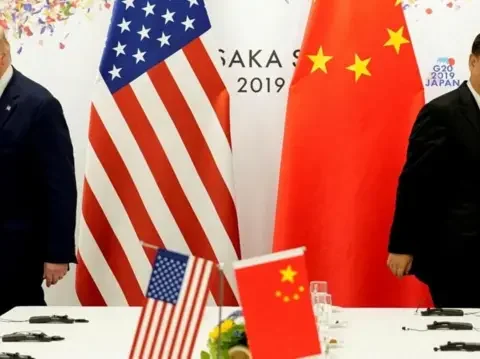India and Pakistan appear once again to be inching towards the precipice of a perilous confrontation in the wake of a terrorist attack in Pahalgam in the heavily militarized region of Kashmir. The assault left 26 Indian tourists dead. Without waiting for even the semblance of an investigation, India rushed to accuse Pakistan within minutes after the incident.
Subsequently, New Delhi unveiled a predictable array of retaliatory measures against Islamabad. Among them is the suspension of the Indus Waters Treaty, a keystone agreement on the sharing of cross-border rivers that has somehow survived multiple crises over the past six decades. Additional steps include the closure of the border crossing, the cancellation of visas, and an enforced downsizing of Pakistan’s diplomatic footprint in the Indian capital.
These so-called retaliatory measures were unveiled with little regard for due process—no investigation into the Pahalgam attack, no credible evidence linking Pakistan to the tragedy. India’s foreign secretary offered only a vague reference to “cross-border linkages,” yet an orchestrated chorus in the Indian media eagerly pinned the blame on Islamabad.
“Pakistan is open to participating in any neutral, transparent and credible investigation,” Pakistani Prime Minister Shehbaz Sharif announced when India imposed retaliatory measures. Yet India has shown no interest in any impartial and international investigation. How in the world’s most densely militarized zone, with over 600,00 Indian military and paramilitary troops, could a group of armed militants manage to infiltrate 400 kilometers deep, launch a major attack, and vanish without a trace? If India’s heavily fortified, heavily surveilled borders could not detect and deter this incursion, the only logical inference is an astounding level of incompetency or, more plausibly, deliberate negligence.
After a National Security Committee meeting, Pakistan announced a raft of retaliatory steps, dismissing India’s moves as “unilateral, unjust and irresponsible.” The suspension of the Indus Waters Treaty was firmly rejected, with a blunt warning that any attempt to divert Pakistan’s rightful share would be deemed “an act of war” and met with “full force.” Islamabad also declared that it reserved the right to hold in abeyance “all bilateral agreements,” including the 1972 Simla Accord peace agreement between the two countries—though, notably, it refrained from tearing them up. Pakistan also shut down the Wagah border crossing, closed its airspace to Indian overflights, and froze bilateral trade. The symmetry of action was clear. But the deeper question remains whether tit-for-tat gestures can contain the perils of an escalating confrontation.
India’s move to suspend the Indus Waters Treaty was the predictable culmination of a deliberate, long-gestating strategy. For several years, New Delhi has been steadily chipping away at the six-decade-old accord that, despite wars and recurring tensions, has endured as a rare example of cooperation. Recent disagreements have centered on the treaty’s dispute resolution mechanisms. In a telling move, India boycotted a Court of Arbitration hearing at The Hague in January 2023, convened to address Pakistani objections to Indian hydroelectric projects on the Chenab and Jhelum rivers, which are lifelines for a water-stressed Pakistan. India argued for the appointment of a neutral expert instead, signaling its desire to rewrite the rule book. Later that month, New Delhi formally notified Islamabad of its intent to amend the treaty’s terms. Pakistan, for its part, reiterated its willingness to engage through the established Indus Waters Commission and urged India to honor its longstanding commitments.
In August 2024, New Delhi formally demanded a review and renegotiation of the Indus Waters Treaty, citing what it described as “fundamental and unforeseen changes” alongside vague security concerns. India pointed to “demographic shifts, environmental challenges, and the urgency of clean energy” as reasons for upending the arrangement. Its letter to Islamabad on April 24 reiterated these talking points but injected a familiar grievance into the mix, alleging “sustained cross-border terrorism” as further justification for putting the treaty on ice. The subtext was unmistakable: political expediency trumped diplomatic commitments.
India’s abrupt suspension of the Indus Waters Treaty is not just a breach of the accord’s own stipulations but also a clear violation of international norms. The treaty does not permit unilateral action; any amendment or termination demands mutual consent. Yet, New Delhi has unilaterally declared the treaty “in abeyance,” linking its revival to Pakistan’s supposed abandonment of cross-border militancy, a charge routinely wielded for political ends. In real terms, India has primarily suspended information-sharing protocols, which had already frayed in recent years. Dramatic rhetoric notwithstanding, India lacks the capacity to divert or block water flows on any significant scale for now. However, the symbolism is potent, and the consequences could prove deeply destabilizing.
Modi’s consistently incendiary remarks since April 24 have raised alarm bells, hinting at the possibility of surgical strikes. The prospect of combining conventional military action with cyberattacks and asymmetric tactics is increasingly likely. Reports of heavy weaponry being moved to the Line of Control only fuel such fears. Any Indian military aggression will likely elicit retaliation, with consequences too unpredictable for even his government to control. This escalation could spiral into a crisis far more devastating than the 2019 Balakot conflict, as the region once again teeters on the brink of catastrophe.
China, Pakistan’s closest ally, has been quick to recognize the gravity of the situation. Chinese Foreign Minister Wang Yi held a phone call with Deputy Prime Minister Ishaq Dar, underscoring Beijing’s full support for Pakistan’s sovereignty and legitimate security concerns. Wang Yi reiterated China’s backing for an impartial investigation and called on both India and Pakistan to exercise restraint.
In 2019, a third-party intervention helped defuse an escalating crisis. But what if no such intervention materializes this time? Without timely external assistance, the standoff between two nuclear-armed neighbors could spiral into uncharted and far more perilous territory. The idea of a limited war under the nuclear threshold is fraught with incalculable risks. Despite India’s apparent reluctance, there is an urgent need to restore back-channel communications to avert catastrophic miscalculations and manage the crisis. Pakistan’s call for an impartial investigation deserves universal support. It remains the sole course grounded in reason and principle.
Source: https://fpif.org/india-and-pakistans-crisis-water-war-and-warnings/






